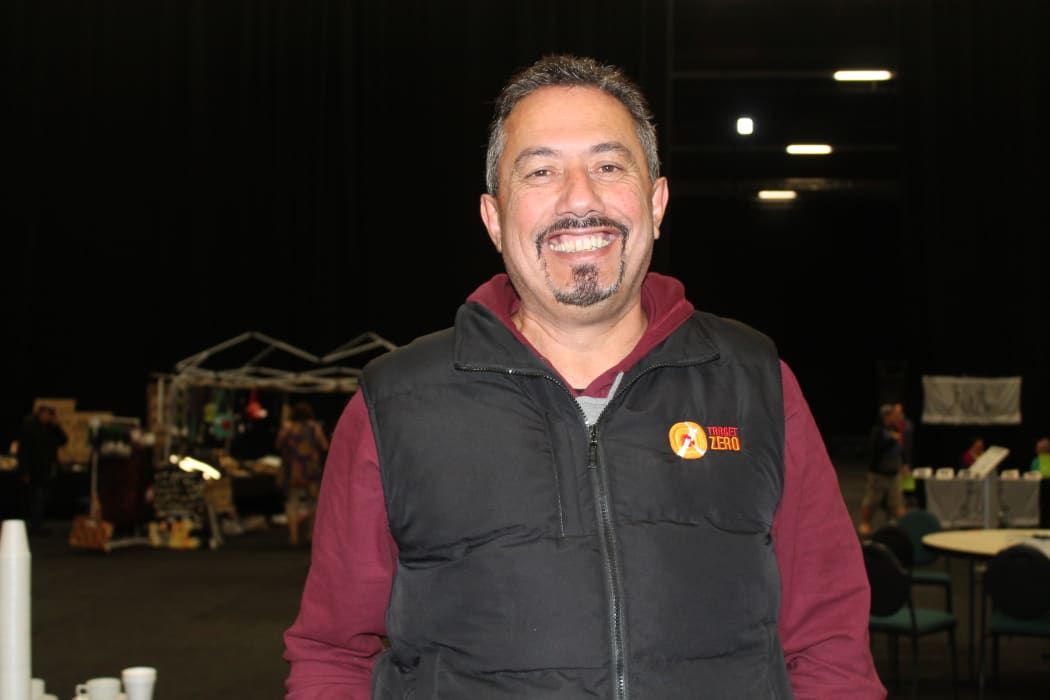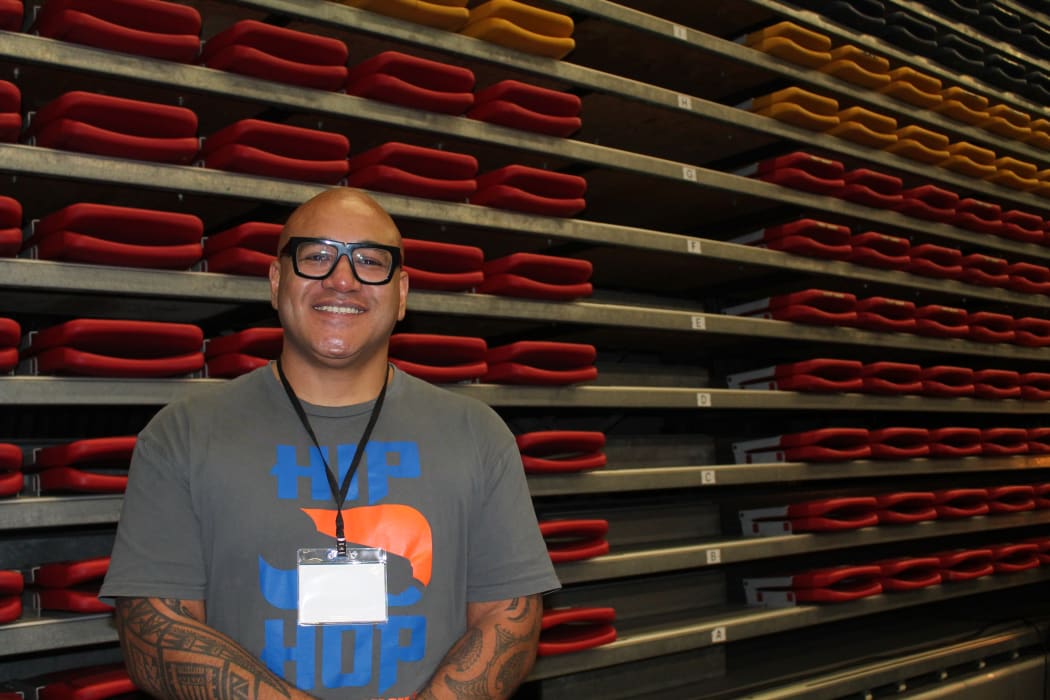Turning the Tide on Suicide is a three-part series by Justine Murray that looks into the issue of mental health awareness and how Māori communities and organisations address suicide.
Mike King

Photo: RNZ/Justine Murray
Mike King is in the hope-selling business. He flicks through the years of his life like pages of a book, using his experiences as teaching notes for the youth he addresses. Over 100,000 young people and parents have heard Mike speak at schools, marae and conferences on mental health awareness and how parents can change their thinking when dealing with their children.
The former comedian hung up his mic 18 months ago and says he feels ‘lighter’ physically and mentally. His wallet feels lighter, too.
"I wouldn’t trade in what I’m doing now for anything in the world. Ten years ago I was a millionaire. I was riding around on V8 motorbikes, Harley-Davidsons...I used to fly overseas for holidays and I was miserable. I was trying to find my true self, and I couldn’t find him, which lead to a life of drugs and alcohol and ego. Now I’m broke, living in South Auckland and never been happier."
At the peak of his career as an entertainer, he hosted his own late night talk show and was a staple part of the comedy circuit, but eventually felt making jokes at the expense of other people’s feelings became bothersome. His widely publicised battle with drug addiction and depression is a stark contrast to his work today for the charitable trust, The Key to Life.
One of the trust's projects is Target Zero, which aims to stop suicides completely.
"If, within our families, sports groups, [and] classrooms, we all make a vow that we will have zero suicides in our family this year, and here are the tools to talk about it... if we keep that goal going and spread it to our Waka Ama groups, our rugby teams, our work colleagues... target zero is achievable."
Bill Urale, aka King Kapisi

Photo: RNZ/Justine Murray
Bill Urale, who goes by his pseudonym King Kapisi, is a hip hop artist and musician who has been performing since the early 1990s.
Bill grew up in Wellington in a creative family whom he calls the Urale Clan. His mum was an artist, and his sisters are film directors, playwrights and writers. Over the years he has taken multi-tasking to another level running the community event Elevated Family Park Jam with his wife, singer Teremoana Rapley.
There’s music, three-on-three b’ball, workshops, and dance competitions because King Kapisi believes a simple mantra - the kids need something to do.
"The problems that I do find with academia is that you talk about it, and you analyse it but then you don’t actually put that in action. But I’m on the other side just saying listen, with all that knowledge that you have and your profession and all of that, what did you actually do to help the community?"
Aside from event management and making music, he makes t-shirts for his company The Plantation Store, deejays in rural communities, and when he has time, travels overseas on tour or to talk to young people – his most recent trip was to Noumea, New Caledonia.
His ‘full steam ahead’ approach came crumbling down around him at one point when over three days he only had eight hours sleep. At the time, a personal relationship was strained, he competed in a boxing match, and then had to perform a gig hours after.
"After the boxing match, I was all battered and bruised and I started having those same low thoughts, and I was thinking, those are those same thoughts I had when I was 19... I was thinking to myself 'I can have those type of thoughts and I can pull myself out. How about the people that can’t pull themselves out?' So I started organising my own events so I can inspire youth they way I was inspired."
King Kapisi travels the country attending speaking engagements and says it’s through music, hip hop culture, emceeing and sport that he connects with young people.
"It doesn’t have to be mana ties for me, I feel that if I can change someone’s life and just help then that’s something good. I like money, but that’s not my drive... I’m into helping the people."
Mehemea kei te noho koe i te pouritanga, tēnā whātoro atu ki tou whanau, ki ou hoa piripono rānei. Atu i tērā, anei ētahi o nga roopu hei awhi i a koe.
If you are experiencing depression, reach out to whanau or close friends.
Here are a number of sites with information on ways to get help.
If you need to talk to someone about your own mental health, try these helplines. If it is an emergency, call 111.
Lifeline - 0800 543 354
Depression Helpline - 0800 111 757
Healthline - 0800 611 116
Suicide Crisis Helpline (aimed at those in distress, or those who are concerned about the wellbeing of someone else) - 0508 828 865 (0508 TAUTOKO)
Youthline - 0800 376 633, free text 234 or email talk@youthline.co.nz

